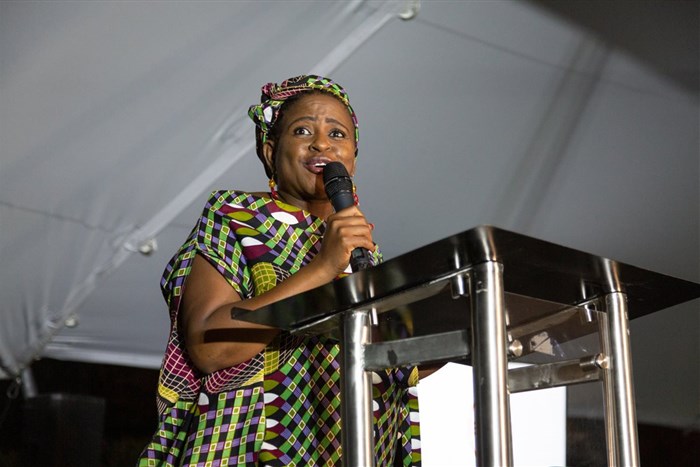
Related
Top stories






More news







Logistics & Transport
Uganda plans new rail link to Tanzania for mineral export boost











The Annual Sanef Black Wednesday Gala Dinner was held at the historic Emoyeni venue in Parktown, Johannesburg.
“A critical, independent and investigative press is the lifeblood of any democracy. The press must be free from state interference. It must have the economic strength to stand up to the blandishments of government officials.
“It must have sufficient independence from vested interests to be bold and inquiring without fear or favour. It must enjoy the protection of the constitution so that it can protect our rights as citizens," said Sanef chairperson Mahlatse Mahlase – who opened her speech with a quote from former President Nelson Mandela.
“The reality is that the lifeblood of our democracy is under threat, it is fighting for its economic survival and pushing back on what appears to be an orchestrated campaign to silence investigative reporting exposing the greed and ills of our politicians,” she added.
Black Wednesday marks 19 October 1977, when then-minister of justice Jimmy Kruger banned several newspapers, as well as various black consciousness and pro-democracy organisations. Prominent editors and journalists were arrested, detained, assaulted, tortured in the process.
“Yes, today we gather to remember the heroes of our liberation struggle – those who used the might of the pen to risk their lives so that today we can be free to speak truth to power – protected by our celebrated constitution. We honour the men and women who despite the real danger of the evil regime, said we will force into the open the atrocities of the apartheid government.
“Men and women like Percy Qoboza, Joe Thloele, Mathatha Tsedu, Aggrey Klaaste, Juby Mayet (who worked for Drum), Thenjiwe Mtintso (who was at Daily Dispatch and detained with Steve Biko) and Ruth First,” said Mahlase.
While journalists may operate without the threat of being jailed, Mahlase said media freedom, in South Africa, is still under threat. “Yes, under democratic South Africa – we don’t fear being jailed, we don’t fear being tortured but our jobs are still hard. We are facing new threats to our freedom,” she said.
Despite those difficulties, Mahlase called on journalists to not be deterred. “We are facing a difficult time, but we dare not falter – we have to draw on the strength of the journalists of yesteryear who risked all to be the voice of the aspirations of a nation. Our armour should continue to be our ethical, factual and balanced reporting.”
She also appealed to corporate South Africa to continue to support the country’s newsrooms. “Newsrooms are shrinking because advertising revenue has declined drastically due to tough trading conditions, technological disruptions and a weak economy. Companies are spending their advertising budgets with Google and Facebook, and the sad truth is that that much-needed revenue is not filtering into our newsrooms,” she said.
“Journalism is facing a legitimacy crisis. It is in survival mode and its demise will have a devastating consequence for our democracy. Our new struggle is to remind this generation and the next that the struggles and pains of the generation before cannot be in vain. Our own late Raymond Louw said: ‘There is a new breed of journalists that stands up to authority! Let’s continue the struggle,’” said Mahlase in the conclusion of her speech.
The event was also addressed by Kuben Naidoo, Deputy Governor of the South African Reserve Bank.
Naidoo said that in many ways, the media and central banks struggle with the same dance: the need for independence balanced by the need to be held accountable to society.
Closing his address Mr Kuben Naidoo (@KubenNaidoo2 ) encourages a free and respected media with integrity to safeguarding democracy. pic.twitter.com/bPcFsqzG1H
— SANEF (@SAEditorsForum) October 18, 2019